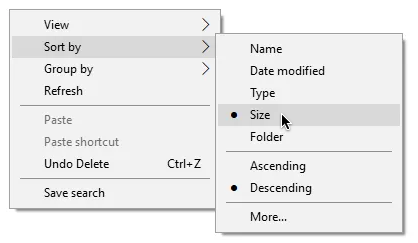

Even if you have the operating system on an SSD or an NVMe drive, Windows will still slow down and misbehave if it runs out of available space.

Uninstalling old software might free up some more space depending on how many useless programs are installed.Įven after doing those things, a system might still be left with less than 10% of free space remaining and Windows doesn’t really like that. That will help remove all the junk and temp files that can take up several Gigabytes on badly affected systems. When someone tells you they’re running out of hard drive space, the first thing you would probably tell them to do is to clean up the system using a program such as CCleaner.


 0 kommentar(er)
0 kommentar(er)
